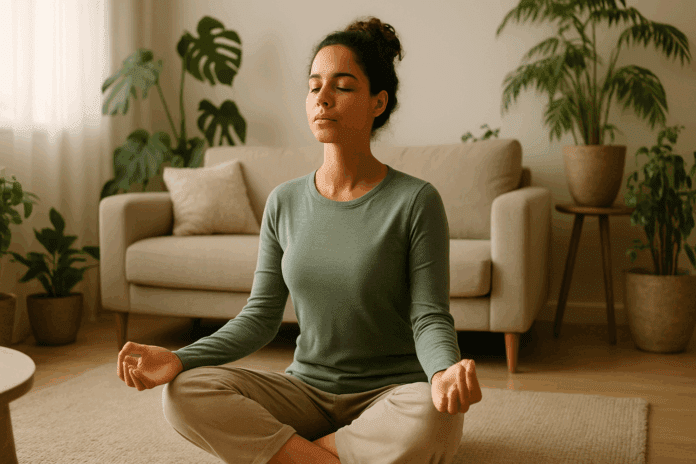In a world that moves faster than ever, anxiety has become one of the most common mental health challenges faced by adults of all ages. While prescription medications are widely used, many individuals are now seeking non prescription anxiety medication options that are effective, safe, and sustainable. Natural remedies for anxiety have gained increasing attention as a way to address symptoms without the side effects often associated with pharmaceuticals. These remedies not only provide natural anxiety relief but also support long-term brain health and emotional resilience.
You may also like : Best Rated Nootropics for Brain Health: Top Supplements to Enhance Focus, Memory, and Longevity
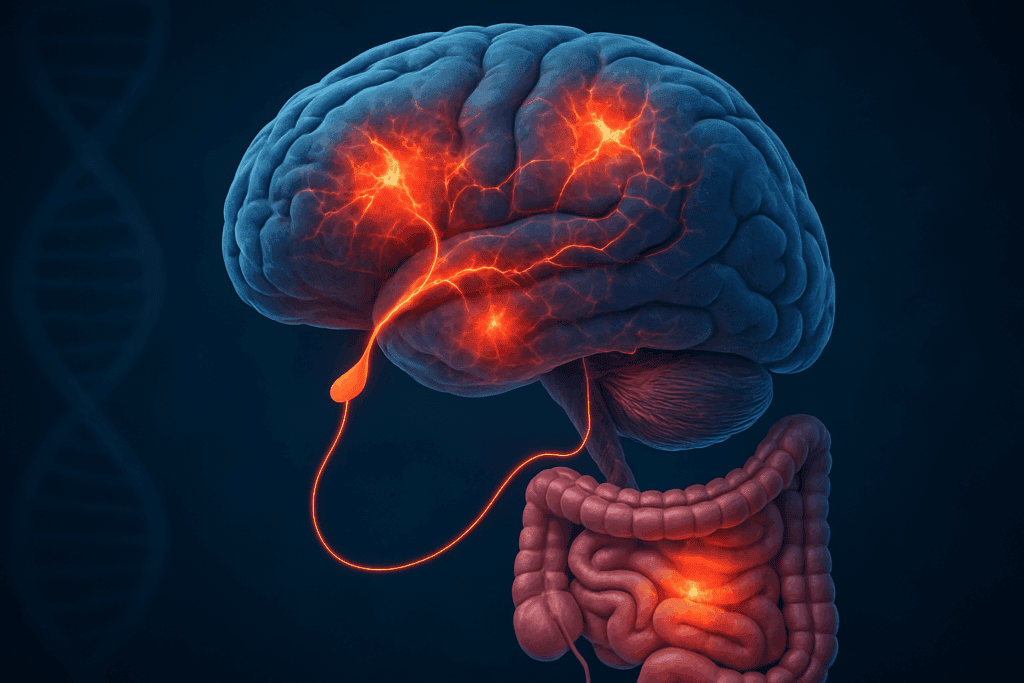
Understanding the Root of Anxiety and Chronic Stress
Anxiety is more than a temporary feeling of unease. For many, it represents a chronic condition shaped by genetic predispositions, environmental stressors, nutritional deficiencies, and lifestyle choices. Chronic stress disrupts the body’s neurochemical balance, particularly the regulation of neurotransmitters like serotonin, dopamine, GABA, and cortisol. Understanding how to relieve stress quickly at home requires a deeper awareness of the biological systems affected by anxiety. This includes the hypothalamic-pituitary-adrenal (HPA) axis, which regulates the body’s stress response, and the gut-brain axis, a two-way communication network between the gastrointestinal tract and the central nervous system.
Prolonged activation of the stress response can impair cognitive function, suppress immune activity, and accelerate cellular aging. From an anti-aging and longevity perspective, unaddressed anxiety and stress may contribute to inflammation, oxidative damage, and telomere shortening—all of which are markers of premature aging. Therefore, discovering how to relieve anxiety naturally is more than a matter of comfort; it is a critical step in safeguarding long-term health and vitality.
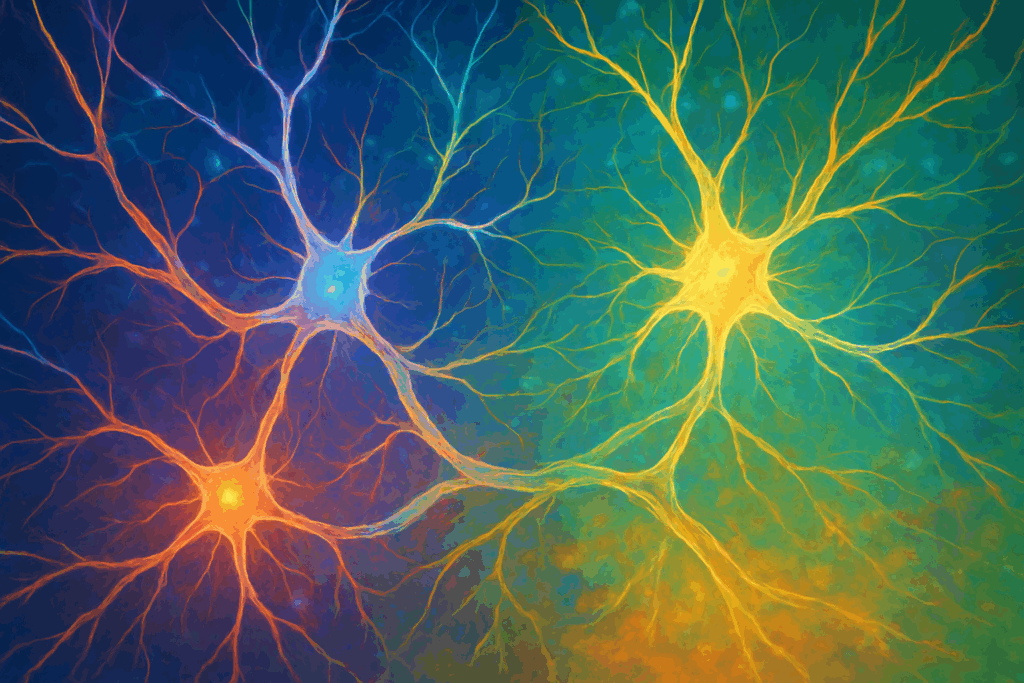
Neuroplasticity and Anxiety: Rewiring the Anxious Brain Naturally
One of the most promising areas of modern neuroscience is the concept of neuroplasticity—the brain’s ability to rewire itself in response to experience. Chronic anxiety often establishes deeply entrenched neural pathways that reinforce hypervigilance, negative thought patterns, and emotional reactivity. However, research shows that with consistent practice, these pathways can be remodeled. Understanding how to treat anxiety naturally increasingly involves tools that harness this plasticity.
Mindfulness-based cognitive therapy (MBCT) and neurofeedback are two evidence-backed modalities that work by promoting new neural connections. MBCT combines mindfulness meditation with elements of cognitive-behavioral therapy (CBT), helping individuals become aware of anxious thoughts without identifying with them. Over time, this reduces the brain’s habitual stress response. Neurofeedback, on the other hand, uses real-time brainwave monitoring to teach the brain how to self-regulate. Both methods represent a cutting-edge approach for those seeking non prescription anxiety medication alternatives that address the root of dysregulated mood.
Why Natural Remedies for Anxiety Are Gaining Ground
With growing concerns over the long-term use of pharmaceutical interventions, more people are asking how to treat anxiety naturally without relying on medications that may have significant side effects or withdrawal risks. The appeal of herbal supplements for anxiety lies in their ability to modulate neurotransmitters, reduce inflammation, and promote relaxation without sedative effects. Non prescription stress medication, such as plant-based formulations, provides an accessible entry point for people who wish to explore integrative or holistic approaches.
From traditional Ayurvedic practices to modern functional medicine, the use of natural supplements for nervousness has been explored through various lenses. Recent scientific studies have begun to confirm what ancient cultures have long observed: certain herbs, nutrients, and lifestyle interventions can reduce stress and support emotional balance. Knowing how to lower stress and improve mental clarity through non-pharmaceutical means empowers individuals to take a proactive role in their cognitive and emotional well-being.
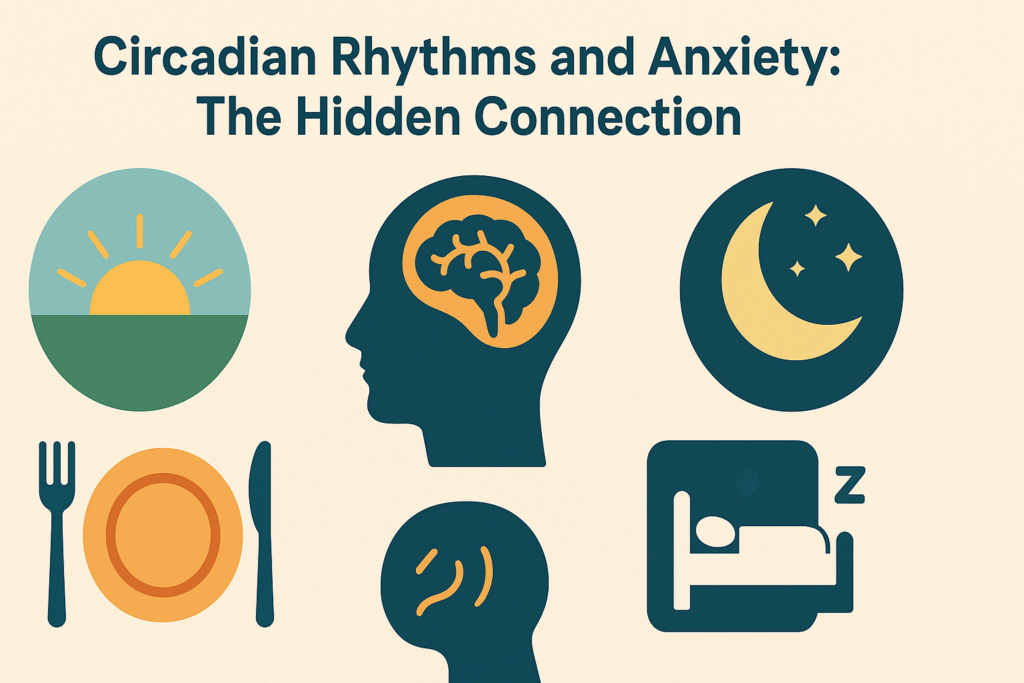
Circadian Rhythms and Anxiety: The Hidden Connection
Many people overlook the profound connection between circadian rhythms and emotional health. Disruptions in sleep-wake cycles, light exposure, and meal timing can profoundly impact mood and anxiety levels. For those seeking natural anxiety relief, aligning daily routines with the body’s circadian biology offers a low-cost, high-impact intervention. This approach is particularly relevant for those searching for how to relieve stress quickly at home without major lifestyle overhauls.
Melatonin, often used as a natural sleep aid, also plays a role in emotional regulation and oxidative stress reduction in the brain. Getting natural sunlight exposure in the morning and limiting blue light exposure in the evening enhances melatonin production and helps maintain mood stability. Similarly, maintaining regular eating windows and avoiding late-night snacking supports metabolic and hormonal balance—two crucial pillars of how to decrease stress from the inside out.
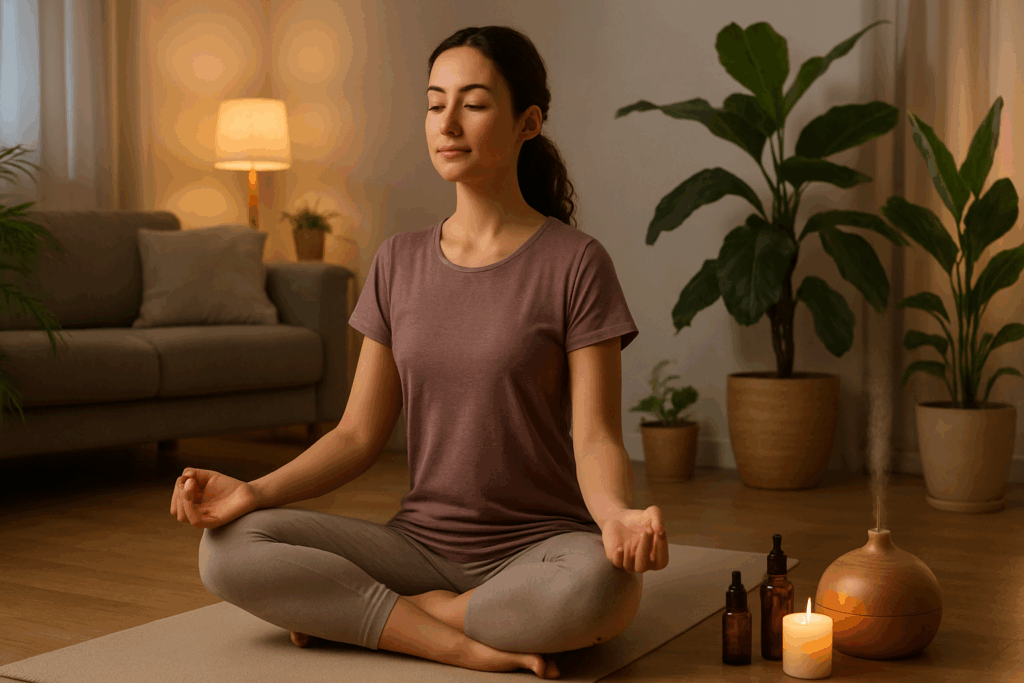
Key Lifestyle Practices for Reducing Stress at Home
Learning how to relieve stress quickly at home starts with implementing daily practices that calm the nervous system and reset stress circuits. One of the most powerful tools is breathwork. Deep diaphragmatic breathing activates the parasympathetic nervous system, lowering heart rate and reducing cortisol levels. Just a few minutes of slow, rhythmic breathing can begin to restore equilibrium. Alongside breathwork, practices like progressive muscle relaxation and mindfulness meditation help rewire the brain’s response to stressors.
Another foundational element is physical movement. While high-intensity workouts can offer a cathartic release, gentle forms of movement such as yoga, tai chi, and walking in nature are particularly effective for those looking for how to relieve stress for a woman or how to decrease stress without further taxing the nervous system. These activities increase endorphin levels and reduce muscle tension, creating a sense of ease and relaxation that can last for hours.
Incorporating a calming sensory environment at home also plays a significant role. Aromatherapy with essential oils like lavender, chamomile, and bergamot may offer natural anxiety relief by interacting with the limbic system, the brain’s emotional processing center. Soft lighting, soothing music, and limiting exposure to screens before bed can also reinforce a calming atmosphere that supports recovery from stress.

Hormetic Stress and Building Resilience
Not all stress is harmful. In fact, mild, controlled doses of stress—a concept known as hormesis—can build resilience over time. Practices such as cold exposure (e.g., ice baths), intermittent fasting, and high-intensity interval training (HIIT) stimulate adaptive responses that improve metabolic and neurological flexibility. These techniques should be used mindfully and with guidance, especially for those currently struggling with high anxiety.
When used strategically, hormetic stressors can serve as tools for rewiring the nervous system and building a greater capacity to handle life’s challenges. They also promote mitochondrial biogenesis, autophagy, and reduced inflammation—mechanisms that support anti-aging and long-term brain health. This counterintuitive strategy adds a new dimension to how to deal with anxiety disorder naturally by emphasizing strength through adaptation.
Creative Expression as a Natural Stress Outlet
Art therapy, music, dance, and writing are all potent forms of emotional expression that activate different parts of the brain involved in self-regulation and meaning-making. These practices offer non-verbal avenues for releasing tension, processing trauma, and cultivating joy. For individuals who feel overwhelmed by traditional therapeutic models, creative expression can be an intuitive, low-barrier path to relief.
Journaling, in particular, has been shown to reduce anxiety by promoting cognitive processing and emotional clarity. Writing about one’s thoughts and feelings provides distance from intrusive worries and helps identify core beliefs that may fuel anxious patterns. Incorporating expressive arts into daily life enhances both psychological and neurological flexibility, making it a cornerstone practice for anyone learning how to relieve stress quickly at home.
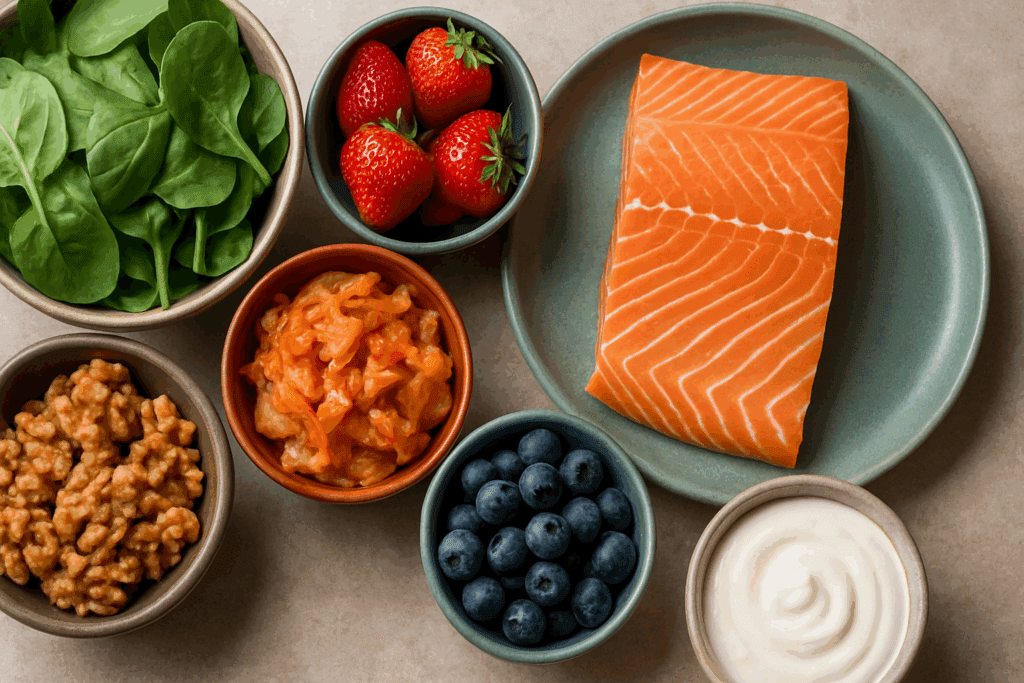
Nutrition and Brain Chemistry: How to Lower Anxiety Naturally
What we eat profoundly affects how we feel. The connection between diet and mental health has become a hotbed of research, with a special emphasis on the role of micronutrients, amino acids, and healthy fats in neurotransmitter synthesis. For those seeking how to stop anxiety naturally, correcting nutritional deficiencies is often a necessary first step. B vitamins, especially B6, B9, and B12, are essential for methylation pathways involved in mood regulation. Likewise, magnesium acts as a natural tranquilizer by regulating the nervous system and supporting GABA activity.
Omega-3 fatty acids found in fatty fish, flaxseeds, and walnuts have been linked to reduced inflammation and improved mood stability. Meanwhile, probiotics and fermented foods support gut health, which in turn influences neurotransmitter production. Because the majority of serotonin is produced in the gut, supporting digestion is one of the most overlooked ways to soothe anxiety naturally.
Caffeine and sugar, on the other hand, can worsen anxiety by overstimulating the nervous system and creating blood sugar swings. Knowing how to avoid anxiety naturally often requires removing dietary triggers that exacerbate symptoms. Adopting a whole-foods diet that prioritizes balance, stability, and nutrient density supports long-term brain health and decreases vulnerability to stress.
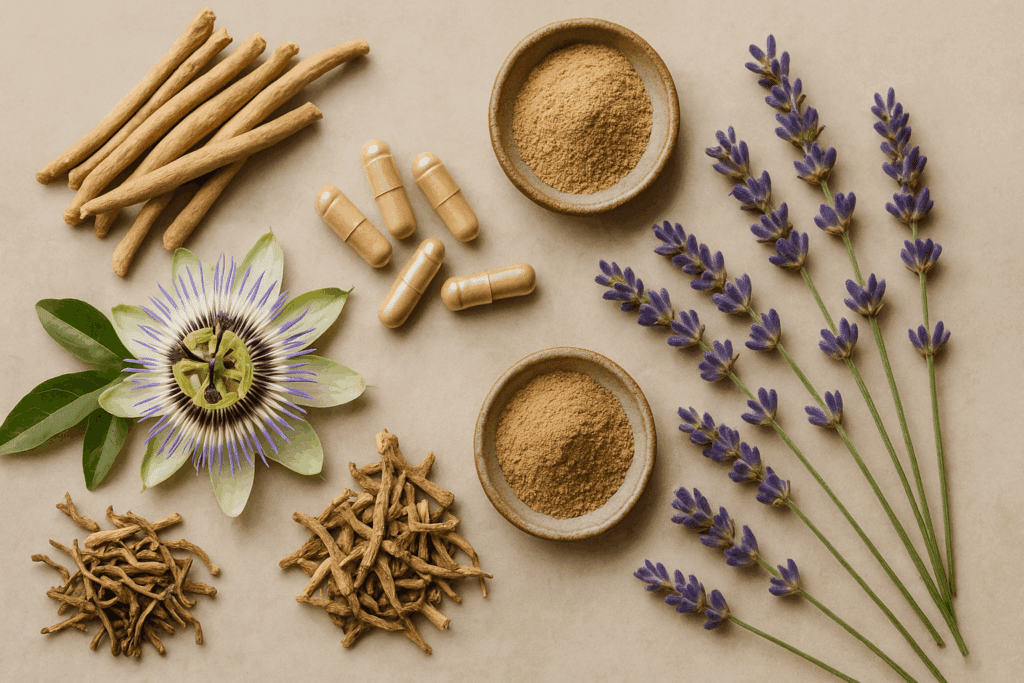
Exploring Herbal Supplements for Anxiety Relief
Among the most researched natural supplements for anxiety are a handful of herbs that demonstrate consistent effects on mood and stress regulation. Ashwagandha, an adaptogen rooted in Ayurvedic medicine, has been shown to reduce cortisol levels and improve resilience to stress. Rhodiola rosea is another adaptogenic herb that enhances stamina and reduces mental fatigue, making it ideal for those with chronic stress or burnout.
Passionflower and valerian root are classified among the best herbal anxiety options for individuals experiencing sleep disturbances alongside anxiety. These herbs enhance GABA activity in the brain, promoting calm without the drowsiness often associated with sedative medications. Lemon balm and lavender extract have also shown promise for their gentle calming effects and are frequently used in herbal teas or tinctures.
For individuals seeking the strongest natural anxiety medication without a prescription, combinations of adaptogens and nervines—herbs that directly calm the nervous system—can provide broad-spectrum relief. These blends are available as over the counter medicine for anxiety and stress, often formulated as capsules, teas, or liquid extracts. Choosing products from reputable brands that prioritize quality testing ensures both efficacy and safety.
The Role of Nootropic Botanicals and Brain Longevity
While herbs for anxiety offer short-term relief, some natural supplements also support cognitive health and longevity. Lion’s mane mushroom, for example, has neuroregenerative properties that promote nerve growth factor (NGF) production, which may improve memory and cognitive resilience. Bacopa monnieri, an herb used in Ayurvedic traditions, has been shown to enhance memory, reduce anxiety, and protect brain cells from oxidative stress.
The synergy between cognitive enhancement and stress relief is central to long-term brain health. Chronic anxiety, if left unchecked, can impair hippocampal volume and accelerate neurodegeneration. Therefore, using natural anxiety relief strategies that also improve mental performance offers a dual benefit. For those exploring how to get rid of stress while preserving brain function into later years, this integrated approach is essential.
Adaptogenic mushrooms such as reishi and cordyceps may also support adrenal health and immune regulation, adding an anti-aging dimension to their benefits. Their ability to balance energy without overstimulation makes them ideal additions to a comprehensive plan for those who want to decrease stress while enhancing brain vitality over time.
Gender-Specific Considerations in Natural Anxiety Treatment
Understanding how to relieve stress for a woman requires acknowledging hormonal fluctuations that influence mood and stress sensitivity. Women are more likely than men to experience anxiety, particularly during times of hormonal change such as menstruation, pregnancy, postpartum, and menopause. Phytoestrogenic herbs such as red clover and black cohosh may support hormonal balance and reduce mood swings that contribute to anxiety.
Incorporating natural supplements for nervousness that are tailored to the female physiology is especially important when crafting a personalized treatment plan. For example, evening primrose oil, rich in gamma-linolenic acid (GLA), supports hormonal regulation and skin health, making it a holistic option for women dealing with both physical and emotional stress.
Lifestyle interventions also take on unique dimensions for women who may carry additional stress from caregiving roles or societal expectations. Practices such as journaling, breathwork, and female-centric yoga sequences can address both the physical and emotional layers of stress. In this context, learning how to soothe anxiety naturally becomes not just a wellness goal, but an act of self-empowerment.
How to Deal with Anxiety Disorder Naturally and Sustainably
When anxiety becomes chronic or significantly disrupts daily life, it may meet the criteria for an anxiety disorder. Many individuals with generalized anxiety disorder (GAD), panic disorder, or social anxiety seek non prescription anti anxiety options before turning to pharmaceuticals. While professional guidance is always recommended, understanding how to deal with anxiety disorder naturally can offer empowering solutions that reduce symptom severity and improve quality of life.
Key strategies include establishing consistent sleep routines, limiting exposure to digital stressors, and engaging in structured therapy such as cognitive behavioral therapy (CBT) or acceptance and commitment therapy (ACT). These therapeutic approaches, when combined with natural remedies, offer long-term coping tools that reinforce emotional resilience. For those asking how can I relieve anxiety naturally without dependency on medication, integrating these evidence-based approaches creates a well-rounded foundation for healing.
In addition to herbs and lifestyle practices, emerging technologies such as neurofeedback, vagus nerve stimulation, and wearable biofeedback devices provide novel tools for modulating the stress response. These methods enhance body awareness and self-regulation, equipping individuals with greater control over their internal states.
Practical Guidance for Choosing the Right Natural Solutions
With the abundance of options available, choosing the right natural anxiety relief solution can feel overwhelming. A key principle is bioindividuality: what works for one person may not work for another. Factors such as genetics, health history, lifestyle, and even microbiome composition influence which herbs or interventions will be most effective. Consulting with an integrative healthcare provider can help tailor a strategy that addresses the root causes of anxiety.
When considering over the counter meds for anxiety and stress, it is crucial to prioritize third-party tested brands with transparent sourcing and clear dosage instructions. Avoiding products with artificial additives, allergens, or fillers ensures a cleaner, more effective experience. Combining supplements with evidence-based lifestyle changes enhances outcomes and reduces the risk of relying too heavily on any single intervention.
In building a sustainable wellness plan, it is also wise to incorporate ongoing reflection and tracking. Journaling, symptom logs, or even digital wellness apps can help assess what is working, what needs adjustment, and what deeper patterns may be contributing to stress. This iterative process supports long-term success in managing anxiety naturally.
Letting Go of Stress: Building a New Relationship with the Mind
Ultimately, natural anxiety relief is not just about taking supplements or adopting new routines. It is about transforming one’s relationship with the mind. Letting go of stress requires awareness, compassion, and patience. Many people discover that anxiety is often rooted in past experiences, limiting beliefs, or unspoken emotional needs. Engaging in mindfulness practices, expressive arts, or somatic therapies can help uncover and release these deeper drivers of chronic tension.
This psychological and emotional integration is the foundation of long-term change. Rather than avoiding or suppressing anxiety, the goal becomes learning how to hold space for it, understand it, and respond to it skillfully. This approach fosters not just symptom relief, but a more peaceful, present-centered experience of life.
When asking how to relieve stress quickly at home, the answer may begin with something as simple as a breath—but it does not end there. Building a life that supports nervous system health, emotional resilience, and cognitive vitality is a journey that evolves over time. By aligning our daily choices with our deeper well-being, we pave the way for both short-term calm and long-term clarity.
Frequently Asked Questions (FAQ) on Natural Anxiety Relief and Stress Reduction
1. Can natural anxiety relief techniques replace traditional therapy or medication?
While natural anxiety relief methods can offer substantial benefits, they should be viewed as complementary tools rather than direct replacements for traditional therapy or prescription treatment. Techniques such as breathwork, herbal supplements for anxiety, and lifestyle changes can help reduce symptoms and improve quality of life, particularly for individuals seeking how to relieve stress quickly at home. However, those with moderate to severe anxiety disorders may require a more structured approach. It’s not uncommon for people to use both therapy and natural remedies for anxiety in tandem, particularly when trying to avoid dependence on prescription drugs. If you’re exploring how to treat anxiety naturally, it’s best to consult with a licensed mental health professional who understands both conventional and holistic approaches.
2. What are some lesser-known natural supplements for nervousness that have scientific support?
Beyond common options like magnesium and ashwagandha, there are several lesser-known natural supplements for nervousness that are gaining scientific validation. For example, holy basil (Ocimum sanctum) is an adaptogen that supports mood regulation and has been studied for its cortisol-lowering effects. Another compound, L-taurine, modulates GABA activity and may assist with calming overactive neural circuits. These can be considered non prescription stress medication options for people who prefer alternatives to conventional drugs. If you’re wondering how to decrease stress through supplementation, integrating lesser-known botanicals may offer an additional layer of support, especially when used with professional guidance.
3. Are there specific herbs for anxiety that help with sleep-related symptoms?
Yes, certain herbs for anxiety also have sedative properties that can improve sleep quality. Valerian root, passionflower, and lemon balm are widely recognized for their dual benefits in promoting relaxation and supporting deeper sleep cycles. These herbal supplements for anxiety interact with GABA receptors in the brain, making them especially effective for evening use. For those seeking the strongest natural anxiety medication that also addresses insomnia, combining these herbs can be helpful when taken about 30–60 minutes before bedtime. Individuals exploring how to stop anxiety naturally often find that improving sleep is a critical component of overall stress management and cognitive function.
4. How can someone determine the best natural anxiety relief method for their personal needs?
Choosing the right approach to natural anxiety relief depends on several factors including genetics, lifestyle, hormonal balance, and personal triggers. One person may find that regular aerobic exercise and journaling work wonders, while another may benefit more from over the counter medicine for anxiety and stress paired with mindfulness practices. Self-assessment tools, wellness tracking apps, and even DNA testing can provide insights into what types of interventions may be most effective. If you’re unsure how to relieve anxiety naturally in a way that suits your body and personality, working with a functional medicine or integrative health practitioner can provide a personalized roadmap. The key is consistency and patience while experimenting with different combinations.
5. What role does the gut-brain axis play in managing anxiety naturally?
Emerging research highlights the vital role of the gut-brain axis in regulating mood and stress. An imbalance in gut microbiota can negatively impact neurotransmitter production, especially serotonin, which is largely synthesized in the gastrointestinal tract. Natural supplements for anxiety like probiotics or prebiotic-rich foods can support gut health and thereby influence mental well-being. Many people don’t realize that how to avoid anxiety naturally may begin with improving digestion and reducing inflammation in the gut. A diet rich in fiber, fermented foods, and omega-3 fats complements other forms of natural anxiety relief by optimizing this critical communication network within the body.
6. Is there a difference between otc medicine for anxiety and herbal supplements?
Yes, there are distinct differences. OTC medicine for anxiety often includes antihistamines or mild sedatives that are FDA-approved for non-prescription use but are primarily intended for short-term symptom relief. Herbal supplements for anxiety, by contrast, are plant-based compounds that can support longer-term balance with fewer side effects. While both may fall under the umbrella of non prescription anti anxiety solutions, herbal options tend to offer a more holistic impact on the nervous system, especially when combined with lifestyle interventions. Those asking how can I relieve anxiety naturally should consider the broader physiological effects and choose products that support long-term nervous system health rather than just symptom suppression.
7. How do hormonal changes influence the effectiveness of natural anxiety relief strategies?
Hormonal fluctuations, particularly in women, can dramatically influence the effectiveness of different anxiety relief methods. For example, estrogen and progesterone levels affect neurotransmitter function and sensitivity to stress, which explains why many women experience anxiety during menstruation, pregnancy, or menopause. Understanding how to relieve stress for a woman involves tailoring interventions to different hormonal phases. Adaptogens like maca and vitex agnus-castus, as well as magnesium and B6, can be especially effective during hormonal shifts. Recognizing these cyclical patterns helps women choose natural remedies for anxiety that align with their unique physiology.
8. Can over the counter meds for anxiety and stress be used long-term without side effects?
This depends heavily on the specific formulation. Some over the counter meds for anxiety and stress, such as diphenhydramine or doxylamine, may cause sedation, cognitive dulling, or even dependency with extended use. On the other hand, non prescription stress medication based on plant extracts or amino acids generally poses fewer risks when used responsibly. If you’re seeking how to relieve stress quickly at home with minimal long-term repercussions, it’s essential to monitor your response and periodically re-evaluate with a healthcare provider. Overuse of even natural substances can lead to diminished effectiveness or overlooked underlying causes of anxiety.
9. How can people incorporate natural anxiety relief into high-stress professions?
For individuals in demanding careers, incorporating natural anxiety relief requires creativity and strategy. Micro-practices like one-minute breathing exercises between meetings, desk-friendly stretches, or herbal teas instead of coffee can make a meaningful difference. Those wondering how to get rid of stress in high-pressure environments may benefit from digital detox strategies after work, or from portable options like natural supplements for nervousness that can be carried discreetly. A deeper solution might involve cultivating emotional agility and setting firmer boundaries, especially in burnout-prone professions like healthcare or education. The integration of simple, sustainable habits throughout the workday supports not just anxiety management, but long-term performance and mental clarity.
10. What does the future look like for non prescription anti anxiety innovations?
The future of non prescription anti anxiety options is rapidly evolving. Advances in personalized medicine are making it possible to match individuals with specific herbal or nutraceutical interventions based on genetic profiles. At the same time, the development of digital therapeutics—apps and wearable devices that offer biofeedback, guided relaxation, and mood tracking—is revolutionizing how people access natural anxiety relief. As research into the neurobiology of stress deepens, we can expect a more nuanced understanding of how to lower anxiety naturally using integrative, personalized, and tech-enabled solutions. For those exploring how to deal with anxiety disorder naturally, these innovations may offer safer, more adaptive approaches than conventional pharmacology alone.
Conclusion: Embracing Natural Anxiety Relief for Brain Health and Longevity
In the quest for emotional well-being, natural anxiety relief offers a powerful, science-supported pathway to greater peace and cognitive longevity. Learning how to relieve stress quickly at home is not just about immediate comfort—it is about creating an inner environment where resilience, mental clarity, and joy can flourish. By integrating herbal supplements for anxiety, mindful lifestyle practices, and nutrient-rich diets, individuals gain tools that extend far beyond symptom management.
This approach aligns with the principles of anti-aging and long-term brain health, reinforcing the idea that emotional and cognitive vitality are inseparable. Whether exploring the best herbal anxiety remedies, experimenting with non prescription anti anxiety protocols, or simply asking how to decrease stress in daily life, the goal remains the same: to build a grounded, empowered relationship with one’s own mind.
In a world that often overwhelms, the journey inward becomes a revolutionary act. Through thoughtful, natural practices rooted in science and self-awareness, we reclaim not just our calm, but our clarity, creativity, and confidence for years to come.
Further Reading:
Natural Remedies to Alleviate Anxiety

